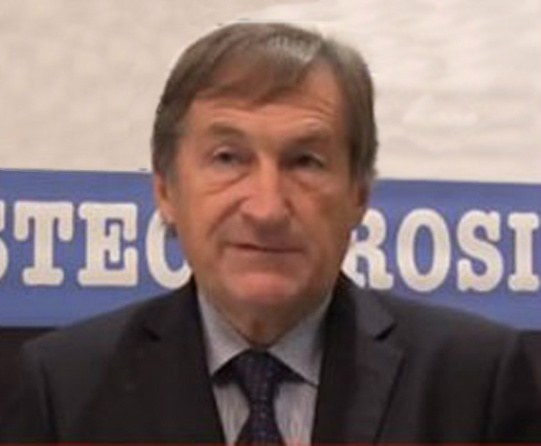Tuesday 16 January at 9pm, the Academy of Medicine of Turin will hold a scientific session, both in person and in webinar mode, entitled “Human papillomaviruses and tumors“. The introduction will be by Santo Landolfo, Professor of Microbiology, University of Turin and member of the Academy of Medicine. The speakers will be Marisa Gariglio, Full Professor of Medical Microbiology, University of Eastern Piedmont, Giancarlo Pecorari, Full Professor of Otolaryngology, University of Turin and Leonardo Micheletti, Associate Professor in Gynecology and Obstetrics, University of Turin.
Prof. Gariglio will deal with human papillomaviruses (HPV), small DNA viruses transmissible through sexual contact which are responsible for the development of squamous tumors of the genital area and upper respiratory tract, with an incidence of 5%. Among the 12 HPV genotypes declared as carcinogens by WHO, those most frequently found in human tumors are HPV16 and HPV18. HPV+ head and neck tumors are considered a distinct clinical entity compared to their HPV- counterpart with a clearly growing epidemiological projection in industrialized countries, including Italy. Viral etiology leads to different clinical characteristics, including high incidence in young non-smoking subjects and greater sensitivity to radiotherapy. Theoretically, HPV-related cancers should be prevented with HPV vaccination. Unfortunately, the fact that the oncogenic action of HPV is the result of a persistent infection even for decades, means that this type of tumor will continue to grow continuously for decades, requiring new therapeutic strategies. The molecular mechanisms underlying the oncogenic action of HPV, the clinical characteristics of HPV-related tumors in the genital area and head and neck, and the new therapeutic strategies under experimental development will be discussed.
The professor. Pecorari will intervene on the exposure of the oral cavity and oropharynx to the human papillomavirus (HPV) which in most cases results in transient infections controlled by the body’s immune system; in a small percentage of cases, the infection can persist in a dormant state and, depending on the HPV genotype, evolve into a benign or malignant disease. Genotypes with a high risk of neoplastic transformation, such as HPV 16 and 18, are responsible for many anal and cervical cancers, as well as oropharyngeal squamous cell carcinoma (OPSCC).
Unlike the classic squamous carcinoma of the oropharynx, linked to cigarette smoking and alcohol consumption, HPV-related carcinoma (HPV+ OPSCC) occurs in an average younger and healthier population; in recent decades the incidence has increased due to an increase in the number of partners involved in oral and vaginal intercourse at a young age.
The initial symptoms are very non-specific, so patients present themselves for a specialist visit when there is already fear of lateral-cervical metastases.
Despite an improvement in prognostic terms linked to a superior response to chemo and radiotherapy, patients affected by HPV+ OPSCC are at high risk of developing permanent disabilities due to the morbidities resulting from oncological treatments. It is of primary importance, in addition to the use of preventive measures, to reach a timely diagnosis in order to treat early-stage diseases and to use de-intensified therapeutic protocols with better outcomes on the quality of life and maintaining, at the same time, good results in oncological terms.
The professor. Micheletti will clarify how oncogenic Human Papilloma Virus (HPV) play the main role in the pathogenesis of cervicocarcinoma, but alone are not able to induce oncogenesis, requiring cofactors. From a clinical point of view, the presence of an oncogenic HPV should be considered “a risk marker”, which means that the majority of carriers of this virus will not develop the malignant tumor. To check for the possible presence of a pre-tumor or tumor lesion, a Pap test and colposcopy are performed. To prevent and reduce the risk of HPV infection, specific vaccination is recommended, which in turn significantly reduces the risk of the tumor appearing.
You can follow the meeting either by accessing the Aula Magna of the Academy of Medicine of Turin (via Po 18, Turin), or by connecting remotely to the website www.accademiadimedicina.unito.it.
